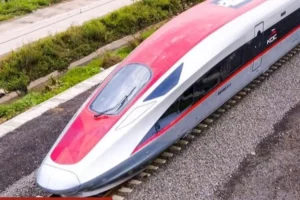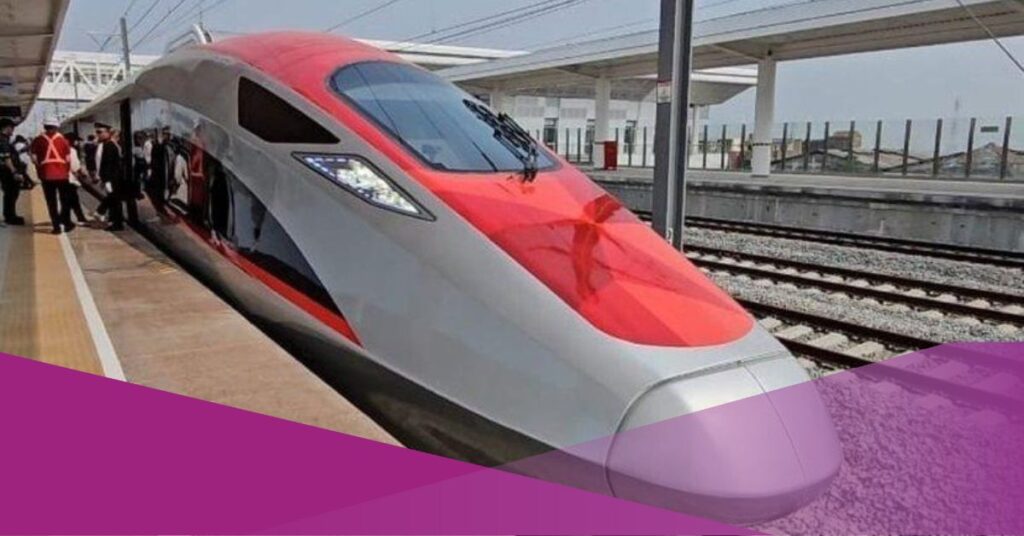Indonesia is making significant strides in advancing its railway infrastructure with the ambitious “Merah Putih” High-Speed Train project. This project, spearheaded by the collaboration between the Education Fund Management Agency (Lembaga Pengelola Dana Pendidikan or LPDP), the National Research and Innovation Agency (Badan Riset dan Inovasi Nasional or BRIN), and PT Industri Kereta Api (Persero), also known as INKA, aims to link the cities of Jakarta and Surabaya via a northern route, passing through Cirebon and Semarang.
The development of the Merah Putih High-Speed Train project has been in progress since 2019, with an expected completion date of 2025 and a testing phase scheduled for 2026. Agus Windharto, the Chair of the Research and Prototyping Team for the Jakarta-Surabaya High-Speed Rail, revealed that this project would reduce the travel time between Jakarta and Surabaya to just 3 hours and 40 minutes, or less than 4 hours.
“Regarding technology and speed, our conventional railways typically operate between 80 to 120 km/h. The journey from Jakarta to Surabaya takes around 8 hours, such as the Argo Bromo. With the introduction of this high-speed train, the same journey could be completed in just 3 hours and 40 minutes,” Windharto stated in a YouTube video released by LPDP RI on the 5th of October, 2023.

Extensive research has been conducted, including the design of the cabin envelope and cockpit. Furthermore, studies on human factors engineering, ergonomics, aerodynamic testing, and the design and testing of the train body structures have been carried out. This research received funding of IDR 4.895 billion from the RISPRO LPDP over three years.
“With the introduction of this high-speed train, we will witness a technological leap involving universities as researchers, BRIN as a research and testing partner, and PT INKA as the manufacturer. Indonesia will be at the forefront of high-speed rail technology,” Windharto added. The development of the Merah Putih High-Speed Rail means that Indonesia will no longer rely on foreign countries, particularly for high-speed rail infrastructure. Indonesia will be capable of producing its rail equipment and will no longer need to import.
“In the future, we will no longer depend on imported products, such as executive train seats and sleeper sets. We can manufacture these domestically and use advanced technology in car body structures, transitioning from steel to aluminium extrusion,” Windharto explained.
The Merah Putih High-Speed Train project represents a significant milestone in Indonesia’s transportation infrastructure development, promising to bring faster and more efficient travel options while showcasing the nation’s growing capabilities in advanced rail technology.
Interested in this topic? Check out our other articles from Social Expat:

































